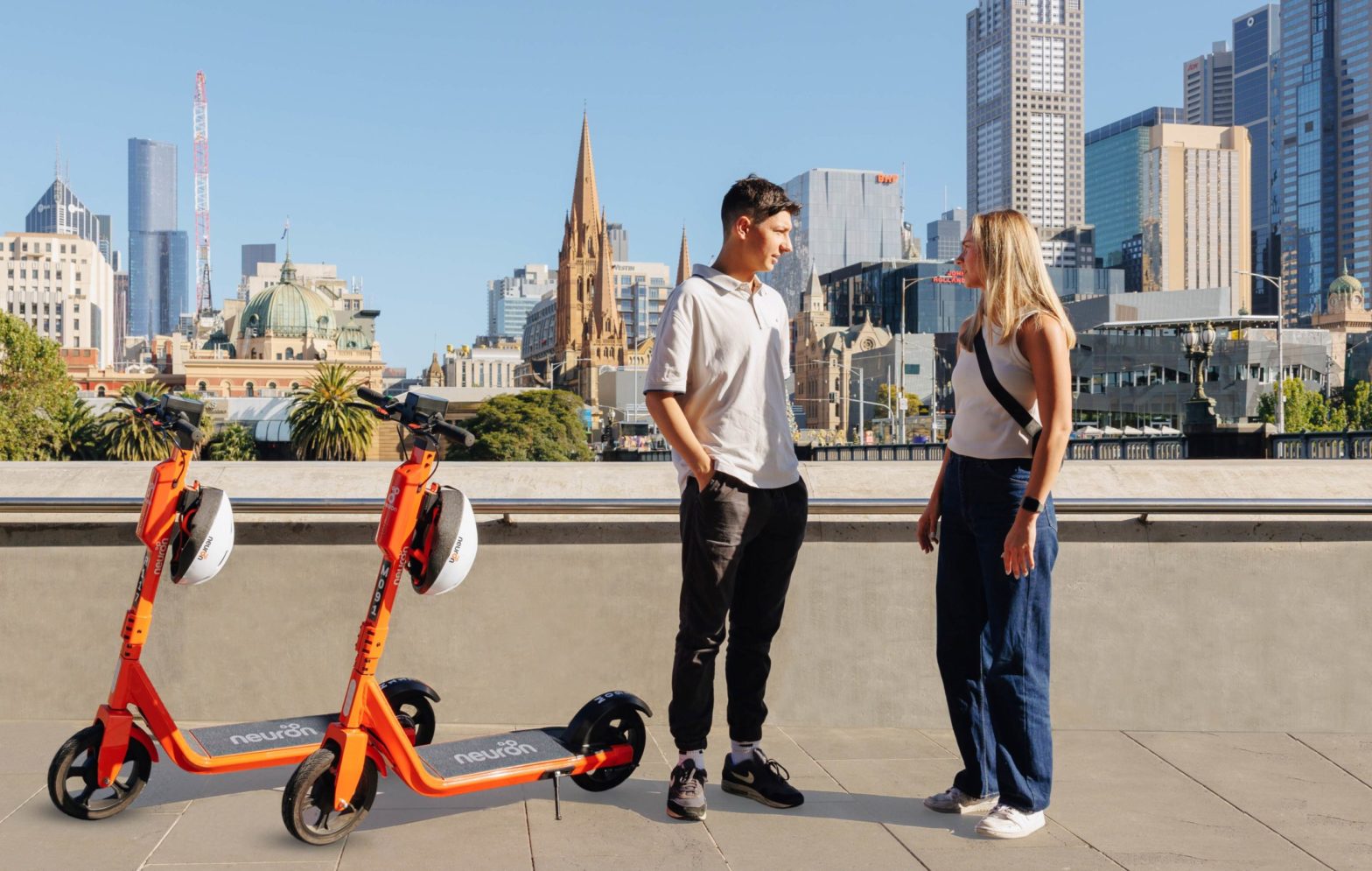
Photo: Neuron mobility
Melbourne e-scooter trial extended for a third time
10 October 2023
by Christopher Carey
Melbourne’s e-scooter trial has been extended for a third time as the state government delays a decision on whether to make the vehicles permanent until next year.
The trial will run for a further six months as the Victorian government – which regulates e-scooter use in Australia’s second-largest city – gathers more data to inform its decision.
“The extension of the e-scooter trial will allow extra time for providers to ensure e-scooters are incorporated into our transport network as safely as possible,” Melbourne Lord Mayor Sally Capp told Cities Today.
“Council recently reviewed the success of the trial to date and made a series of findings and recommendations about how a permanent scheme might be successful – to minimise safety risks and keep city footpaths uncluttered.
“We will continue to work closely with the state government, Victoria Police and our neighbouring councils to manage the addition of private and shared e-scooters across our community.
“We are also working with shared e-scooter providers Lime and Neuron Mobility on ways to improve safety for all road users. This includes technology advancements to encourage safe riding, and work to introduce designated parking zones.”
The city says that since the trials began, thirty percent of e-scooter journeys have replaced trips that would have otherwise been taken by car.
Rules
Melbourne has been participating in the Victoria state government’s e-scooter trial since February 2022, with 1,500 scooters operated by Lime and Neuron.
In January 2023, the trial was then extended by two months, and in March, a further six months were added while a ban on private electric scooters was also lifted.
More than one million people signed up to hire e-scooters during the trial – with five million trips taken and more than nine million kilometres travelled.
E-scooters have a maximum speed of 20 kilometres per hour, and riders must wear a helmet, not ride on footpaths, not carry passengers, and abide by the same alcohol, drug and mobile device restrictions as when they are driving a car.
City support
An internal report by the City of Melbourne’s Future Melbourne Committee in August 2023 noted that some issues had arisen during the trial, including people riding on footpaths, riding while intoxicated, riding without helmets, carrying passengers, and leaving scooters on footpaths.
The report stated that councils need legal powers to manage the schemes if the issues raised are to be addressed.
This would include determining fleet size and setting standards for rider behaviour, parking and the use of technology, as well as a mechanism for issuing penalties and banning operators for non-compliance.
“Rider and community safety remains our top priority,” said Jayden Bryant, General Manager ANZ, Neuron Mobility.
“Our e-scooters are packed with cutting-edge features designed to make them as safe as possible for riders and pedestrians.
“We recently ran our Helmet Safety Awareness Week campaign to further promote safe riding in the city, and have been educating riders at our ScootSafe events.
“We encourage riders to try our digital education platform, ScootSafe Academy, to learn how to use our e-scooters in a safe and responsible way.”
Image: Neuron mobility







